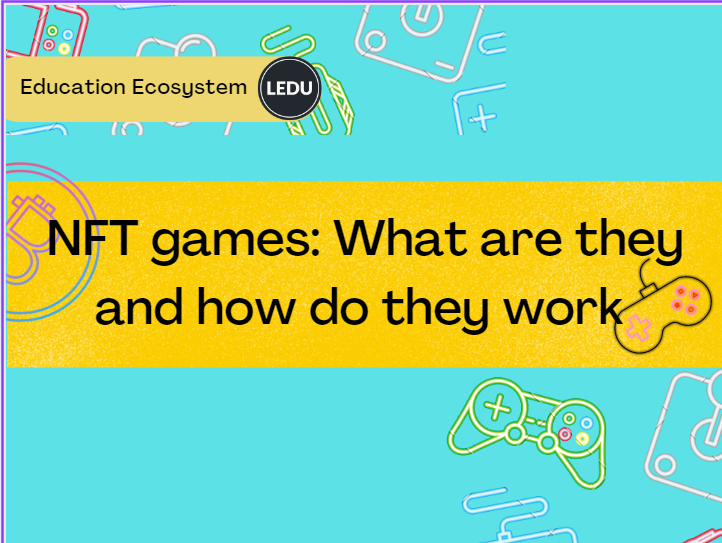
Introduction
The scramble for NFTs had all digital creators in a frenzy trying to get a piece of the NFT loot. Artists of all kinds set to work; renowned painters digitized some of their best works as expensive NFTs, even rapper Snoop Dogg released his NFT collection “A Journey with the Dogg.”
While the entertainment industry was buzzin with NFTs, the video game industry was similarly far from slumber. The gaming industry for long had sought a way to bridge the gap between the virtual and real world, and NFTs are the perfect solution. GameFi, is the chosen term to refer to blockchain games characterized by financial incentives, simply coined from Video games + Decentralized Finance (GameFi). This combination has brought dreams to reality as your video game expertise can now directly earn you a living.
With some game NFTs costing up to $1.1m, like the Mystic Axie, a character on Axie Infinity or pale purple kitty, a character on Cryptokitties which cost $1.3m, it’s no surprise that gamers are trooping into the space for the chance of a big cash out, and sources claim this is just the beginning.
What exactly is an NFT Game?
An NFT game is simply any video game that is centered around the acquisition of digital assets to be exchanged or traded for profit. These games apply the mechanism of blockchain in their core function as secure ownership and exchange of digital assets is only possible with the use of smart contracts. Sometimes these games function with multiple smart contracts, like Cryptokitties, a pioneer NFT game which contributed to popularizing Ethereum’s ERC721 standard. This game makes use of 4 main smart contracts, all serving different functions to ensure rarity and security of its assets.
The difference between NFT games and Traditional games?
You just earned a sword that kills enemies with one blow. Can you make money off this sword by trading it in a marketplace? If no, then you’re playing a traditional game. This is the major difference between traditional and NFT games—real world financial incentives.
Additionally, NFT games have a decentralized nature, they make use of the blockchain technology to put control of the game’s future in the hands of the players. Players decide key changes and updates to the game using governance tokens. The more tokens you have, the higher your voting power. Lastly, blockchain games are fairly complex as they require some knowledge of crypto and blockchain before diving in. Games running on the Ethereum blockchain would require players to buy some ETH for use in-game, likewise games built on the Binance Smart Chain or Solana blockchain would require players having some BNB or SOL.
How can you earn from NFT games?
If you’re an avid gamer looking for a way to boost your crypto portfolio then NFT games could be a viable option for you. Play-to-earn crypto games reward gamers with in-game currency or tokens for dedicating long hours to gaming. Tokens can be earned in various ways, completing game quests, winning battles, crafting items for sale, etc. These earned tokens can then be exchanged for major tokens like Bitcoin, BNB or other tokens.
Best NFT game marketplaces
NFT marketplaces are decentralized applications built for the purpose of buying and selling digital assets. Deciding a suitable marketplace will involve a few considerations like what blockchain and cryptocurrency will be used, fees, and what type of assets are sold.
- Opensea – The most popular NFT marketplace of all as it allows for a wide range of digital assets to be sold on its platform. Opensea is also a host to popular NFT games like CryptoKitties, and Cryptopunks.
- Pros – Free listing, user friendly platform great for newbies, and offers a wide range of digital assets. Supports Ethereum (ETH/WETH), SOL, USDC, and DAI.
- Axie Marketplace – As you must have guessed, this is a marketplace dedicated to the video game, Axie Infinity. On this marketplace users can purchase all assets from the video game such as Axies, virtual lands and other craft items.
- Pros – A one-stop shop for all things Axie. Supports Axie Infinity tokens, Axie Shards.
- Rarible – An upcoming NFT marketplace built on the Ethereum blockchain. Rarible just like Opensea is host to a wide range of digital assets. Its user-friendly platform allows newbies to create and mint NFTs without any special skills. Rarible is home to a few games like MyCryptoHeroes, Wizards & Dragons, and CryptoMans.
- Pros – Easy to use interface, a wide variety of digital assets. Supports Rarible governance token, RARI.
Popular NFT games
- Axie Infinity – One of the first on scene, launched in 2018, Axie infinity is an NFT game by Mavis studio. Its concept is simple; catch the mythical creatures (Axies) and train them to fight other player’s Axies. The game has a story mode and versus mode, both can earn you its native token Axie Shards.
- Decentraland – The NFT real estate game launched in 2015. Decentraland is a virtual reality (VR) game running on the Ethereum blockchain. The idea is based on exploring and buying all kinds of properties. Players can own anything from playgrounds to movie cinemas. Allowing other users explore and possibly purchase their establishments. Its native token MANA doubles as a governance token, aiding users vote on its future.
- Gods Unchained – An NFT card game involving immense strategies. Launched in 2021, God’s unchained is a card game similar to the Elder Scrolls world. Built on the Ethereum blockchain its main asset, playing cards are non-fungible tokens. Which can be traded and exchanged for major cryptos like BNB. The platform recently announced it will be issuing a governance token, $GODS token.
Conclusion
Although NFT gaming is relatively new, the GameFi space seems to be rapidly gaining traction. This could be based on its addictive nature—play video games and earn at the same time? That’s every millennial’s dream. The psychology of its addictive nature is rooted in its gameplay. Players who jump on board the game with freebies get destroyed by paying players, forcing them to either pay for an upgrade or abandon the game entirely. But at least with NFT games when you get tired of them it doesn’t translate to wasted efforts; users have the option of selling their items at the end of play.







